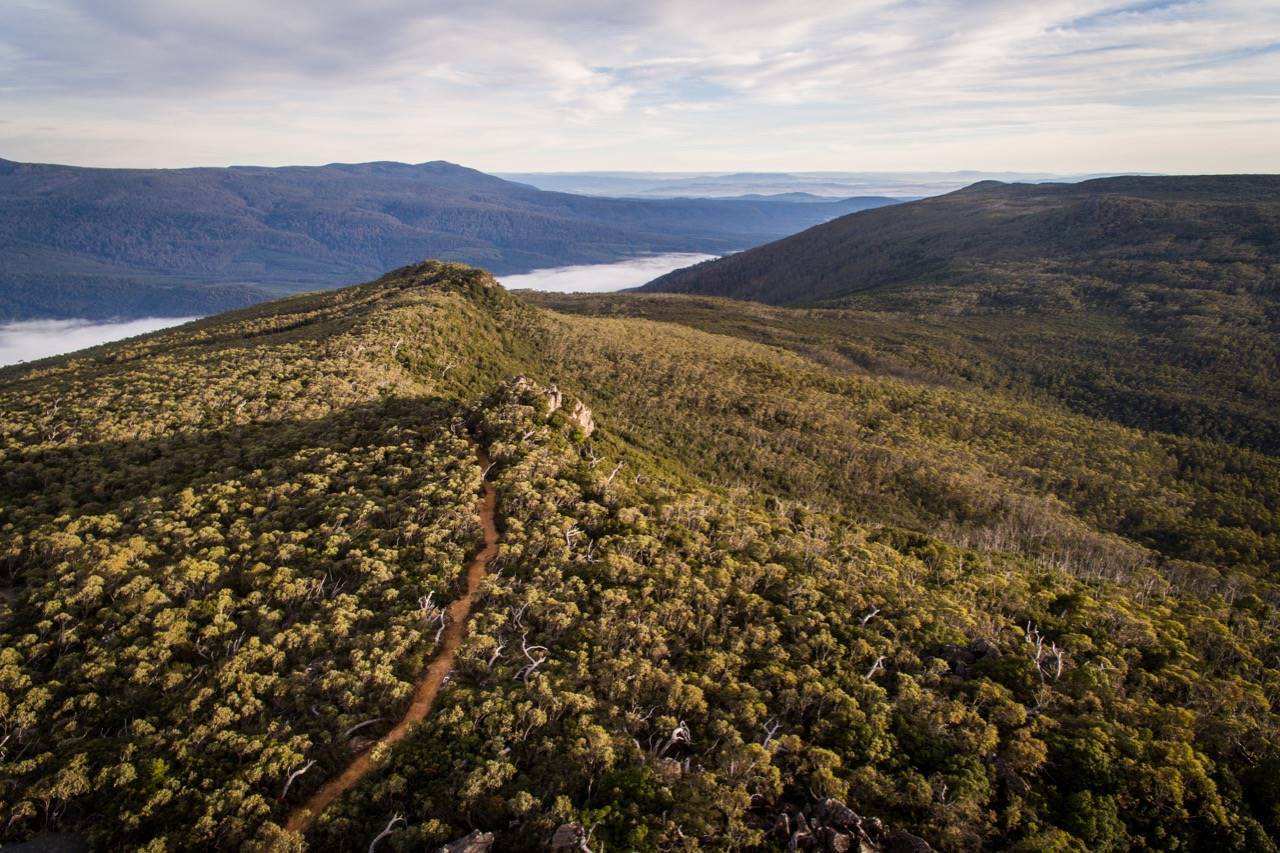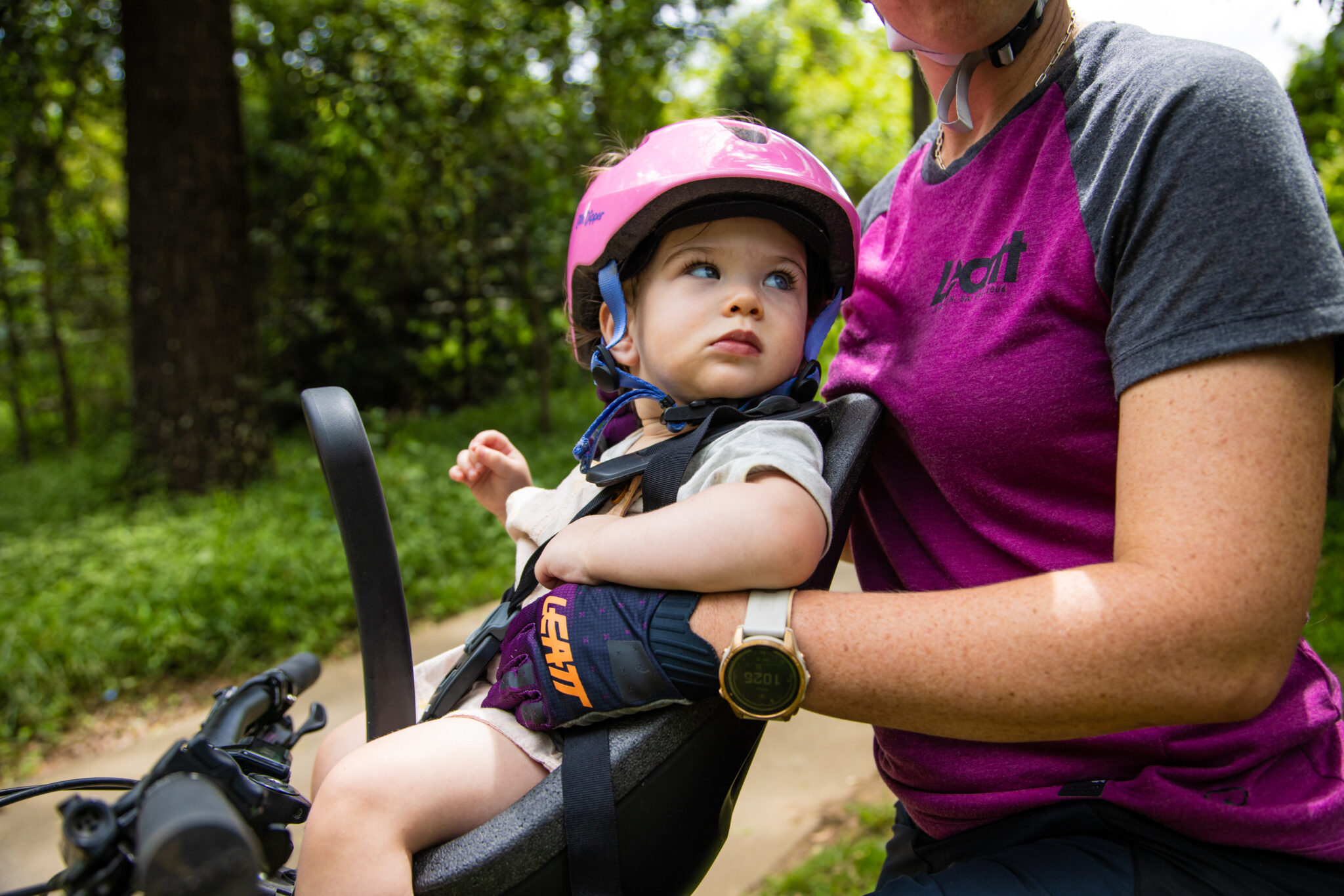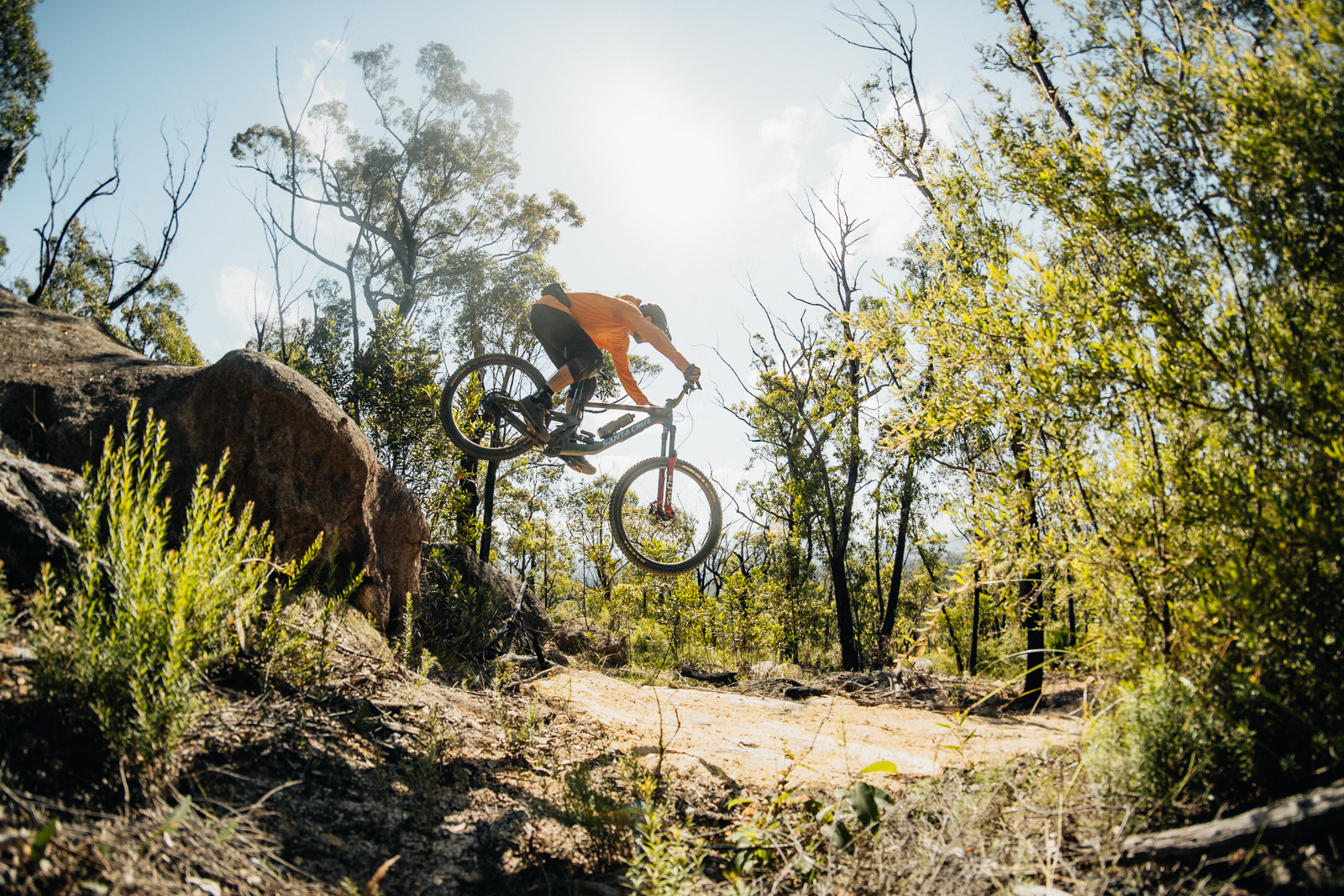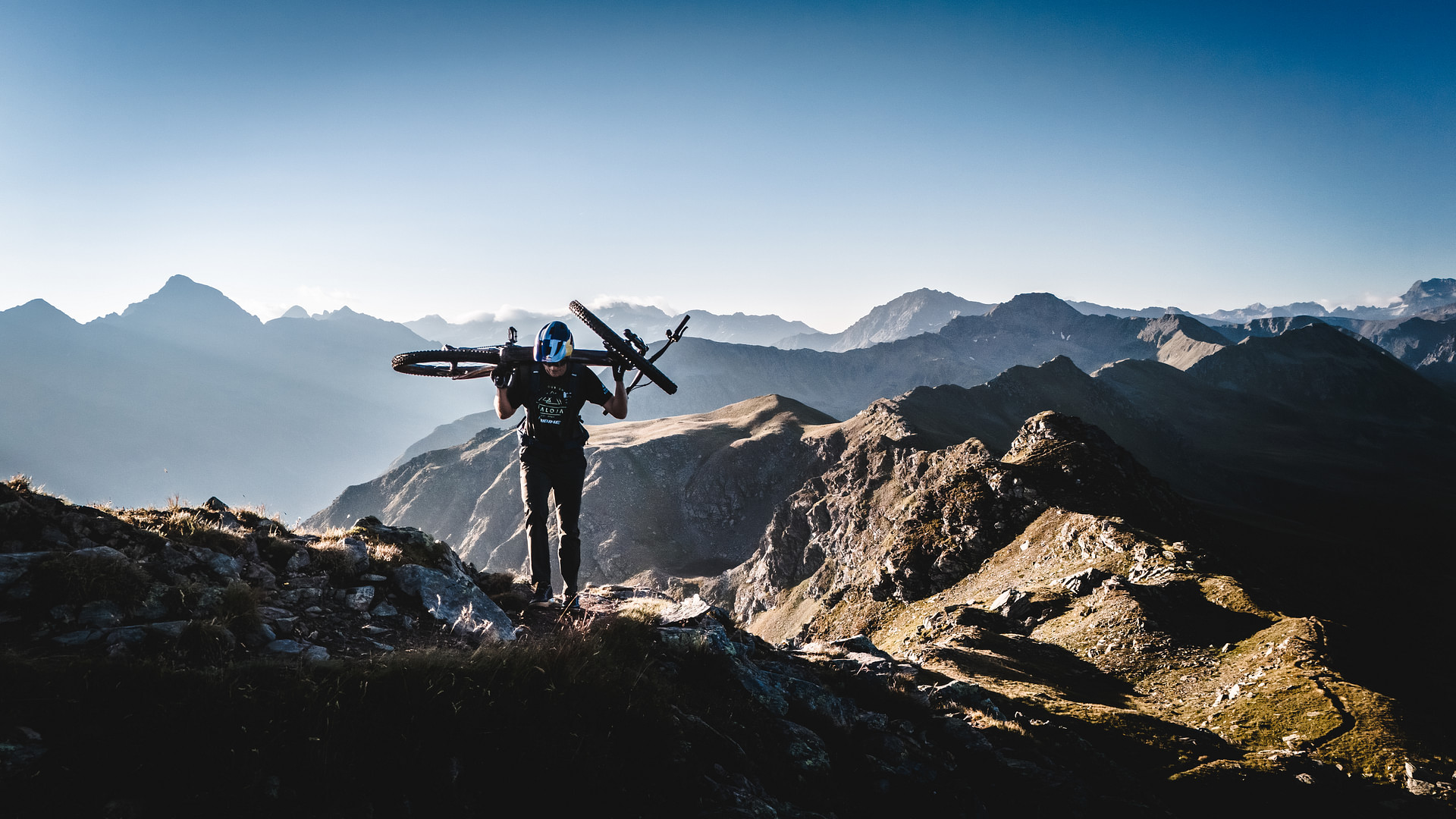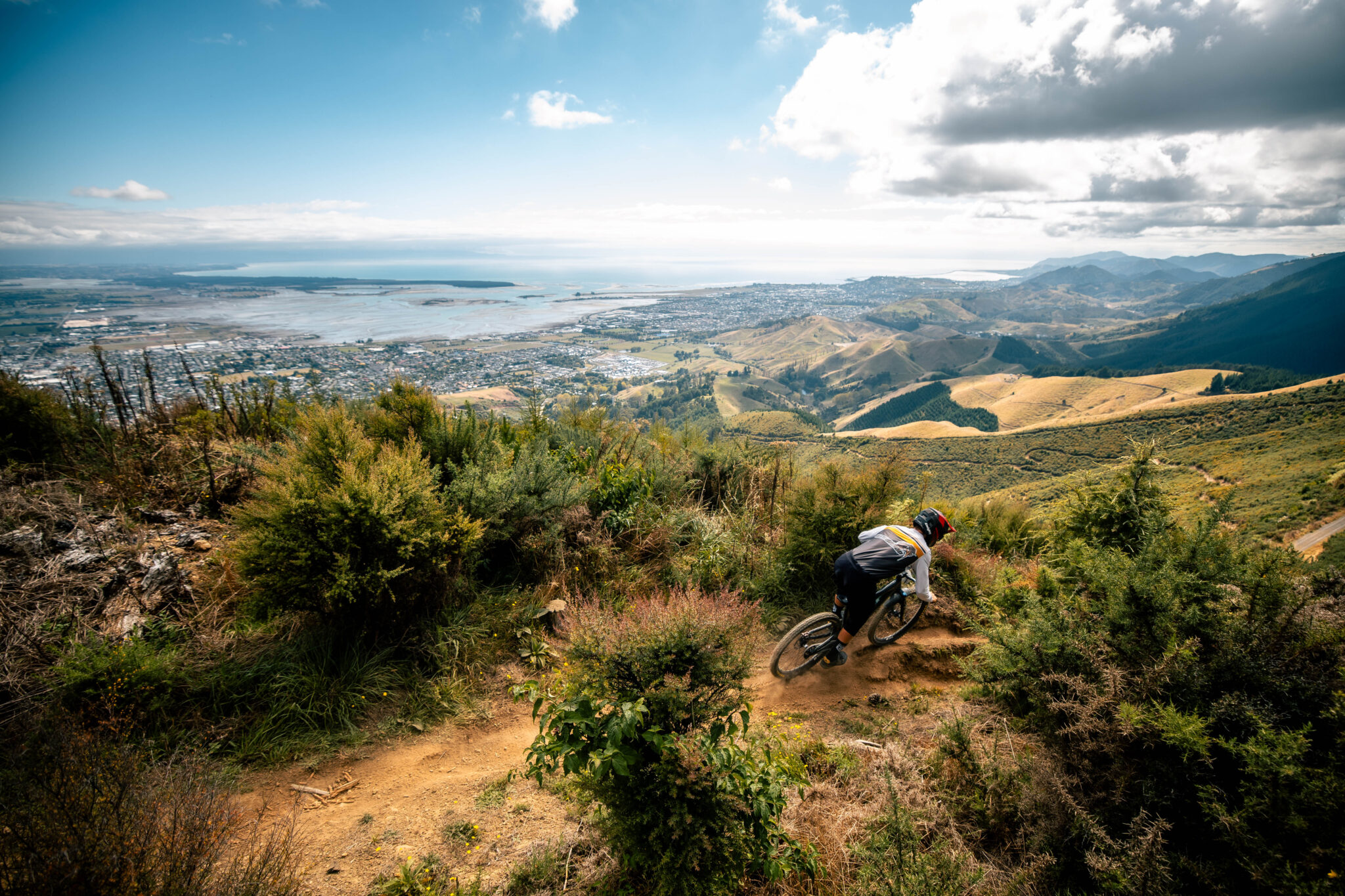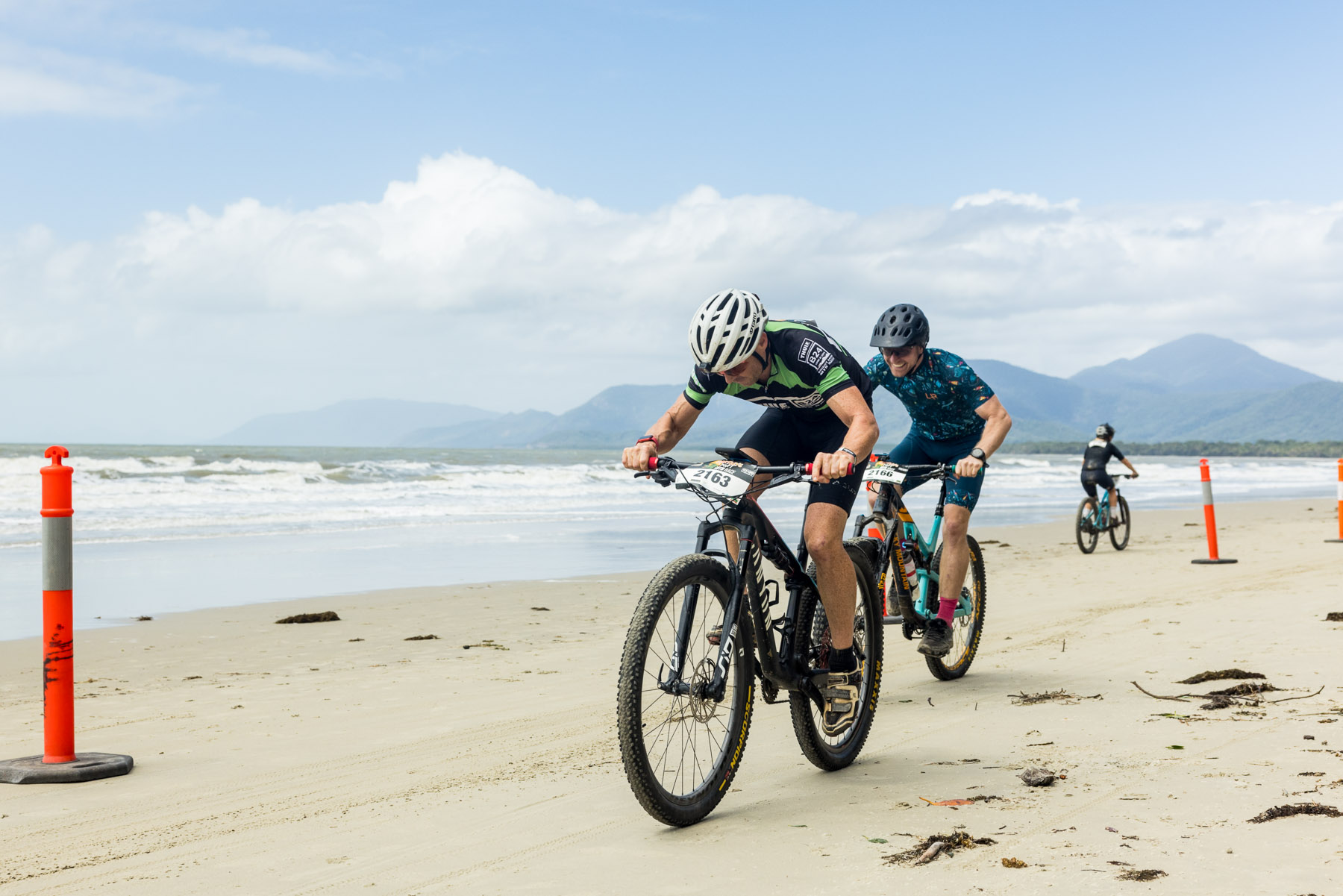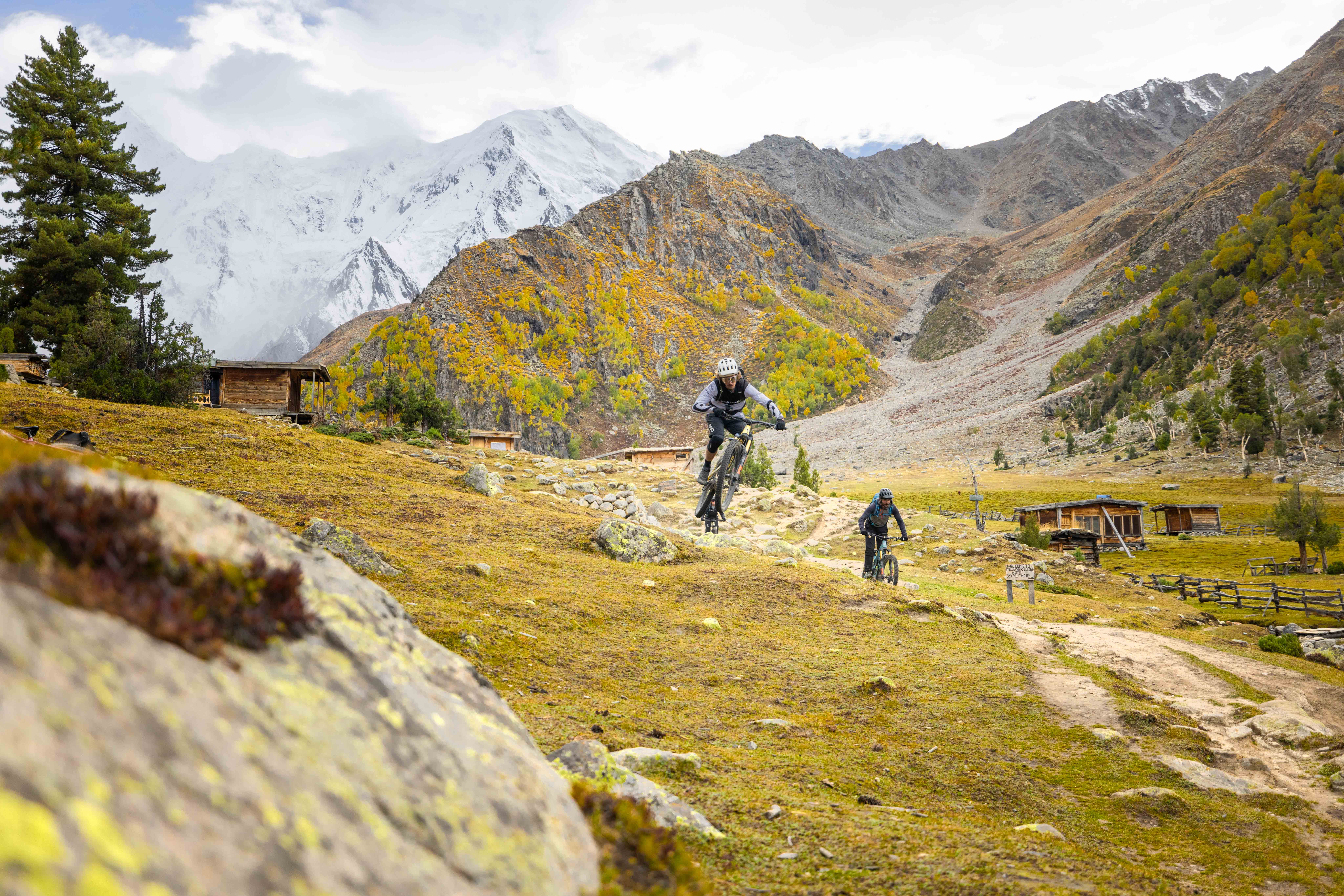Sustainability and mountain biking
See how the MTB industry is looking after our planet!
Words: Mike Blewitt
Climate change came into sharp focus in Australia over summer, and more of us realised that what we do now is going to have a real impact on our environment in the very near future. Mountain biking offers an escape for all of us, but it does not take place in a different world. Any impacts on our climate will have a direct impact on our mountain bike playgrounds.
The mountain bike industry is full of innovation, and full of people working on some cool tech and processes looking to make sure mountain biking is travelling on a sustainable path.
“When I started Why Cycles in 2016, we had a whole section on our website on our commitment to sustainability,” says Adam Miller, founder of Why Cycles and Revel Bikes. “We did things like reusing packaging. We’d get our bikes in here in packaging from China that might not look the nicest, but I thought why not use that when we send it back out?”
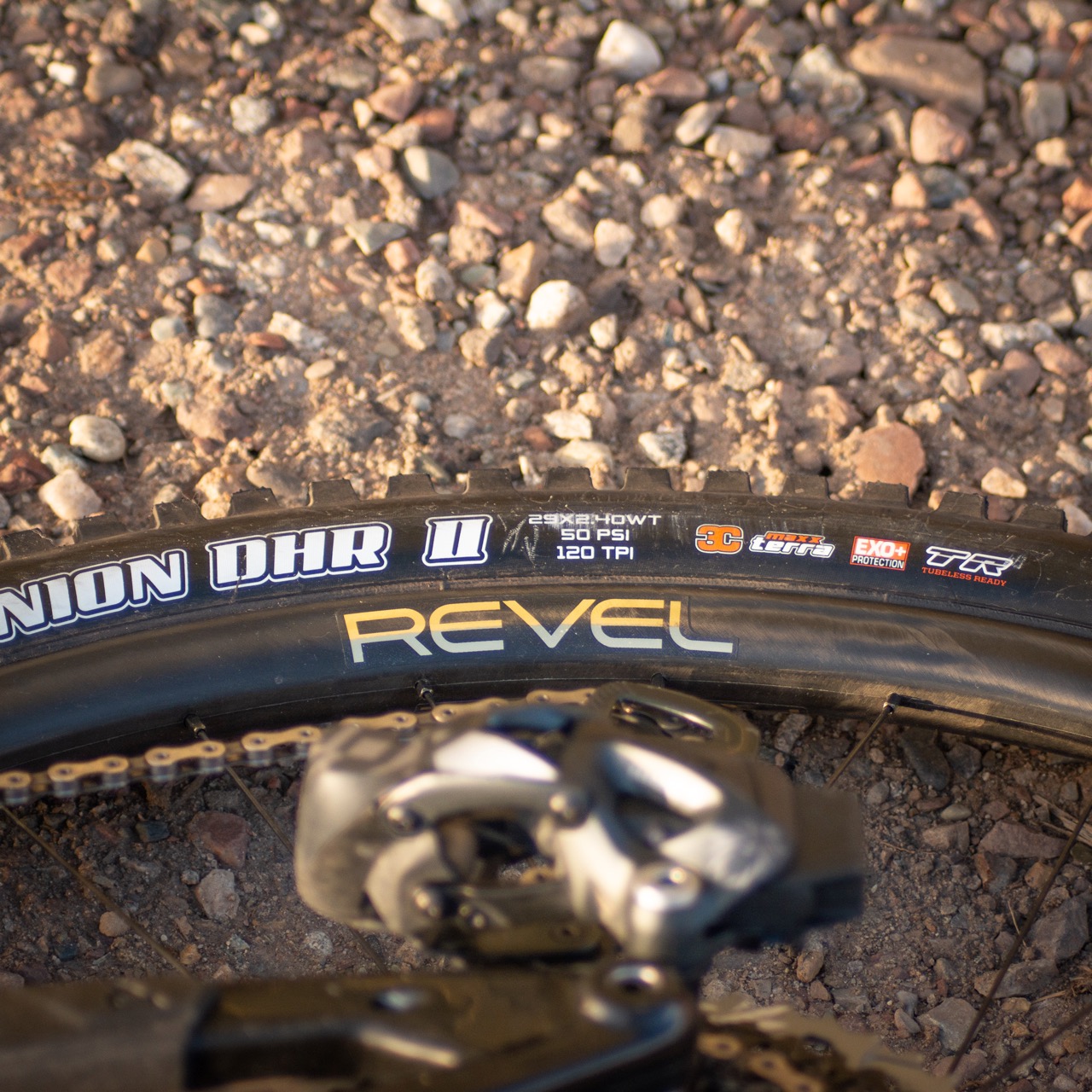
Even your local bike shop gets inundated with packaging. From bike boxes, shoe boxes, all the packaging that a new group set comes in – it all adds up. Most stores here in Australia use a recycling service, but that’s not always possible. Miller composted everything in the office and recycled anything they used as well – but he understood they were just a small company.
18 months ago, Miller launched Revel Bikes as one of 8 people including Chris Reichal, who summed them up as “bike industry veterans, or rejects for lack of a better term”. They are rider-owned and privately funded, which has allowed them considerable scope to operate in their own way. The Revel Bikes Rascal and Rail are full-carbon, high tech mountain bikes using the CBF (Canfield Balance Formula) suspension platform to offer a leading ride quality.
But dealing in carbon fiber doesn’t mean they operate without a thought to sustainability. As a direct to consumer brand, Revel already reduce the amount of times a bike freights, in either road or air. And that same process will be done here in Australia via Off Road Bikes Online.
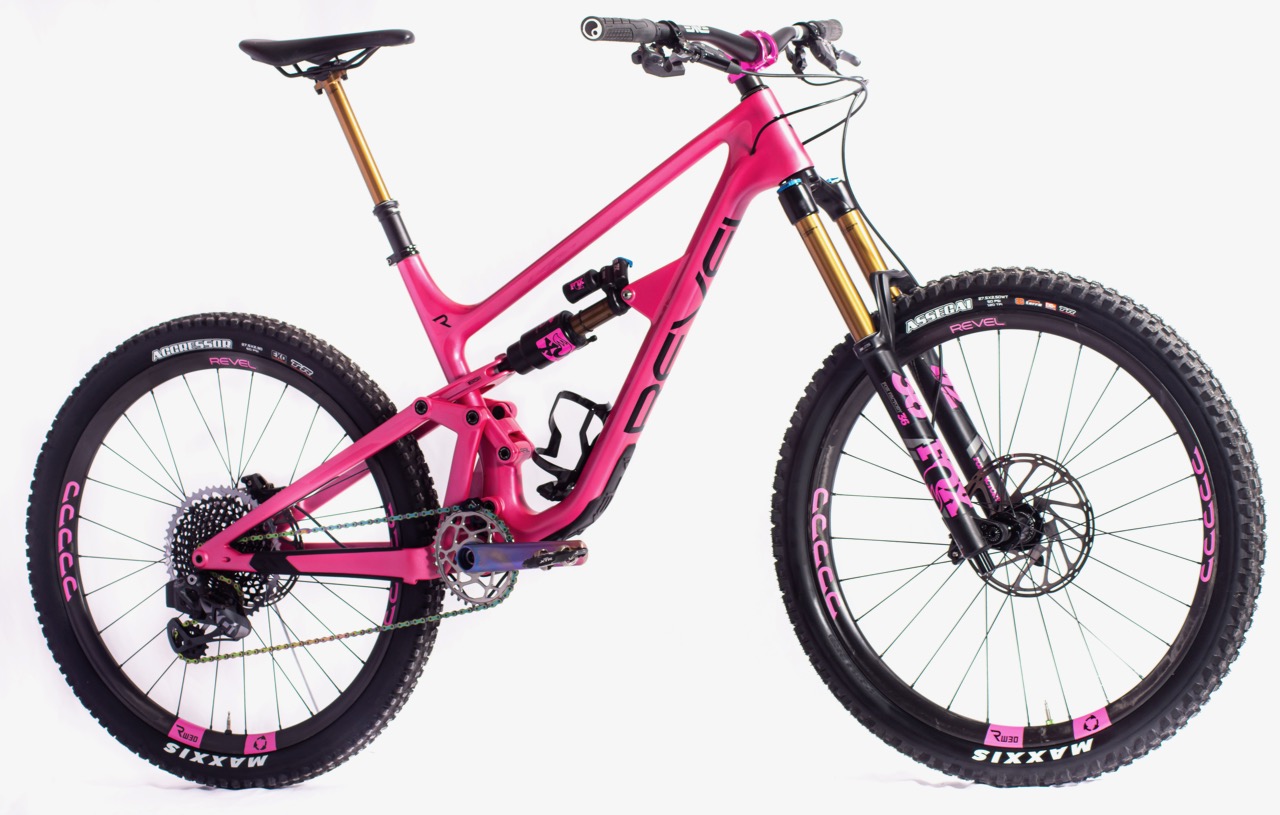
“We put the company here in Carbondale, Colorado,” explained Miller. They are in a place which has compost collection, recycling, and a world-class trout stream barely one kilometre from their office.“We’re here because nature is amazing.” And that connection with nature is part of what drives them, especially when their connections bring up new opportunities and technology.
“We stumbled across this opportunity to make the new rims right before we launched Revel bikes 16 months ago,” explains Miller. Joe Stanish, one of the founders of CSS Composites had developed a new material and manufacturing technique. “It was a new way of manufacturing a thermoplastic material, and Joe asked if we wanted to be the first brand they partnered with.”
With production able to take place just four hours away and not in Asia, it was already attractive. But this new composite tech also offered a better ride quality by using a nylon agent and not epoxy, plus lower weight and greater strength.
“And then Joe said ‘Oh yeah, it’s totally recyclable too.’ So we knew we had to go all in, and make two rim models right away, and there’s a couple more in store that we’re working on.”
The new material they are using in the Revel wheels is called Fusion-Fiber, and Revel are the first brand to be using it. The benefits go beyond waste and damaged products being recyclable though.
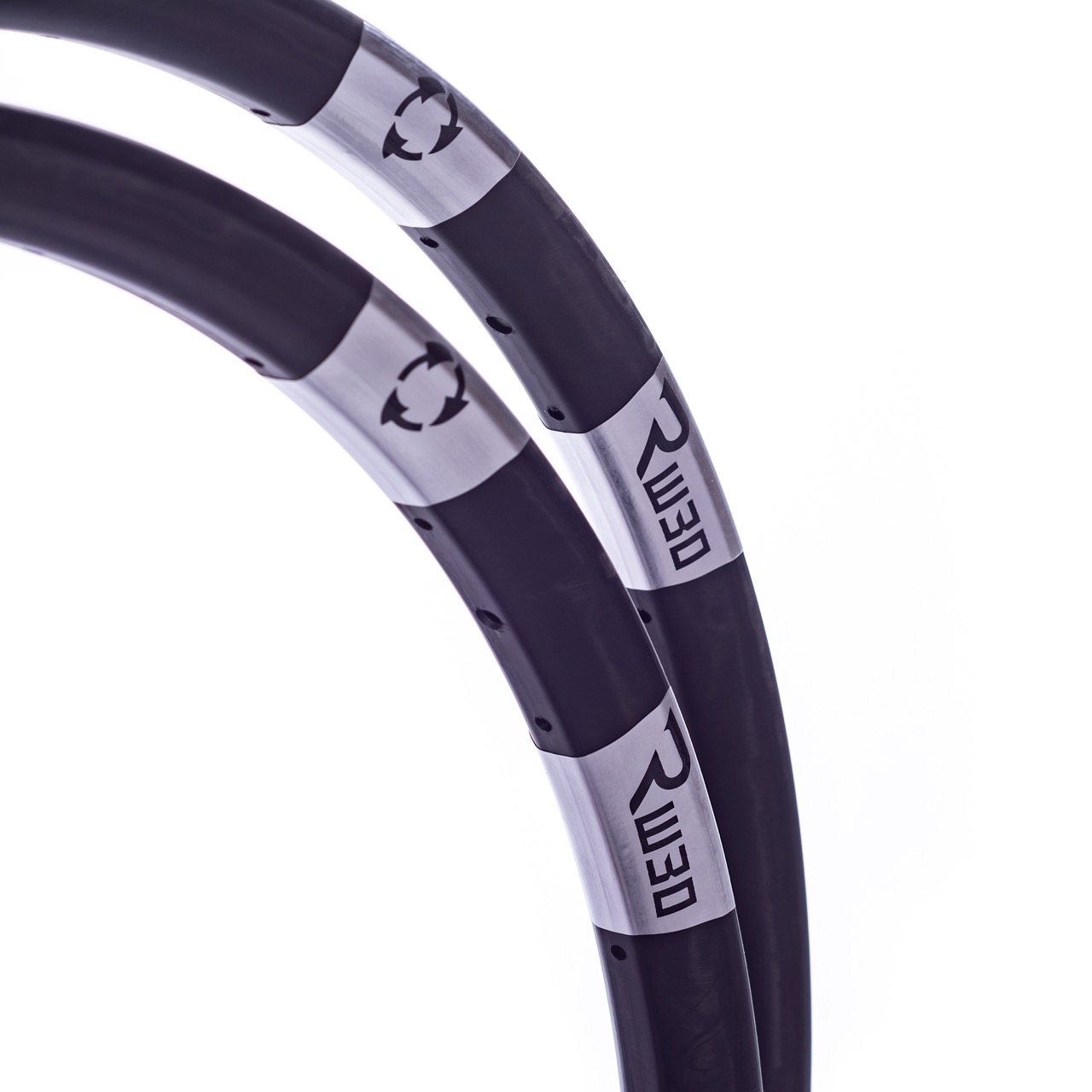
“Traditional carbon manufacturing, so everything except our Fusion-Fiber wheels, is made from carbon with epoxy.” In this process, items need to be sanded down after removal from the mould, and there is a lot of toxic epoxy dust. Working in this way is illegal in many areas, hence why so much production takes place in Asia. “The Fusion-Fiber process is completely clean, the energy input is much lower than traditional carbon fibre, and it comes out of the mould so clean it’s completely ready to go. There’s no sanding, so therefore no breathing in epoxy.”
If you have bought carbon mountain bike wheels before, you probably understand that they aren’t repairable. Failure on a carbon rim is a zero:one sort of situation. They’re fine, or they are cooked. So being able to recycle any broken rims is a huge bonus.
“Joe didn’t quite realise how cool it was to have a recyclable composite,” adds Miller. “We pushed our manufacturer along and they invested in the equipment to fully recycle the excess materials. There’s not a single bit of this material that goes into landfill. Even the little bits that come out of drilling spoke holes, that gets swept up and put in a bin to use. There’s a big chipper that is used for any rims we break in testing, along with any scrap. It all gets melted down and turned into anything else.
And that first product is a carbon fibre tyre lever, manufactured from completely recycled materials. “It’s also strong enough to remove a dirt bike tyre!” adds Reichal.
“We had to experiment with how to make stuff out of the recycled materials, and this is the first thing,” says Miller. It is one thing to say everything is recyclable, but the tyre lever shows that it’s not just possible, but is happening. But Miller and Reichal don’t expect to be churning out a bunch of tyre levers from broken rims.
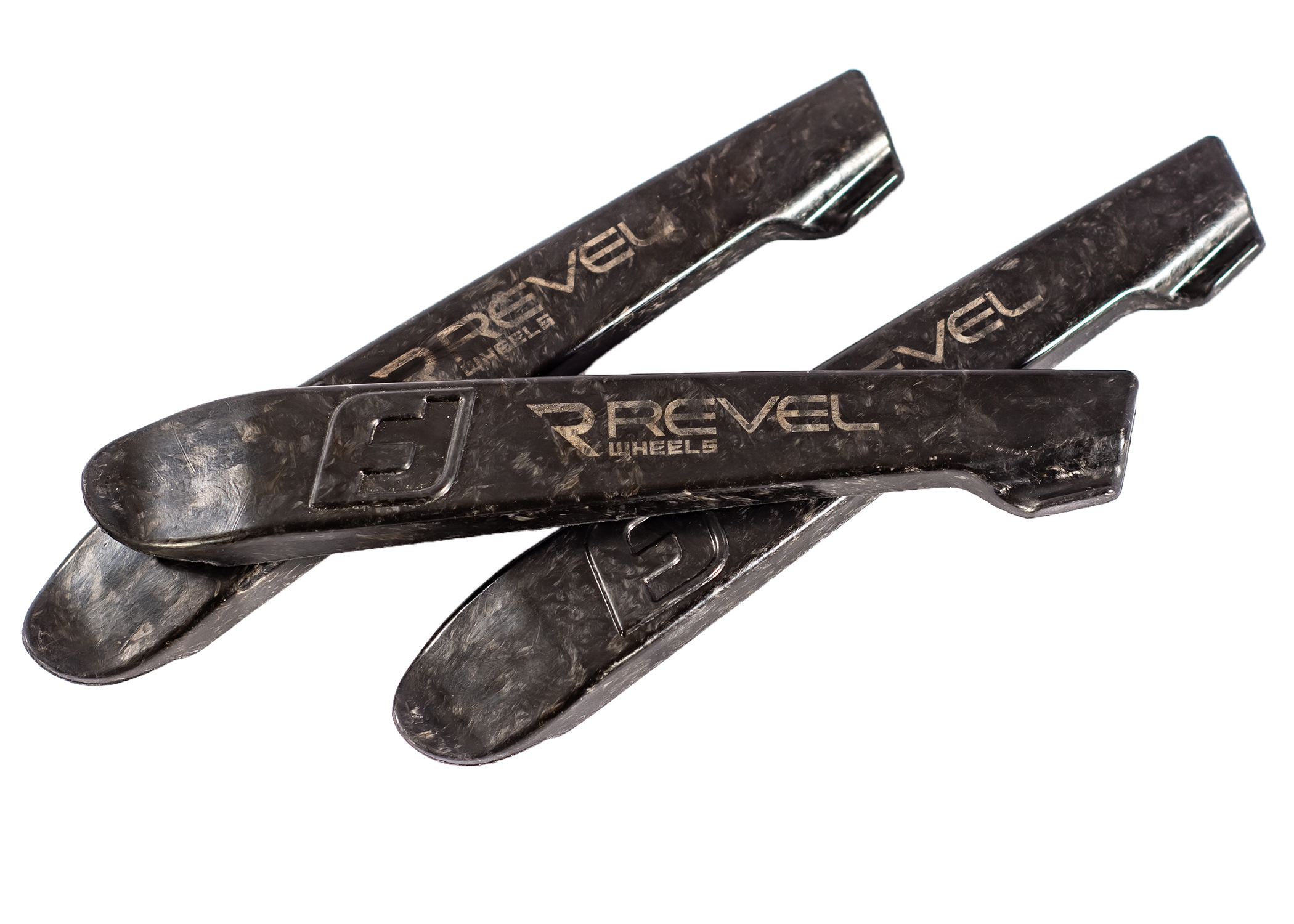
“They’re stronger than any other rim on the market. But if you do break them, we send you a shipping label, they go back to the manufacturer and they get chipped up and made into something like a Revel tyre lever, or a stem, a suspension link,” says Miller.
“There is no reason that this product that we’re selling has to ever go to a landfill,” adds Reichal. “It can just keep getting chipped and reformed and repurposed. If it goes to landfill it’s because no one wanted to mail it to us.”
Revel are a business, and I had to ask about walking that line between promoting sustainability but also getting people on some pretty fancy new bikes.
“It’s a core dilemma of being a business and selling products,” admits Miller. “We aren’t helping the environment by any means, we are manufacturing things and selling them. I’d like to think everyone needs the best bike ever, but on some level – they don’t. Our bikes have a lifetime warranty and we overbuild them. But we know that we’re geeky mountain bikers who love riding the newest stuff.”
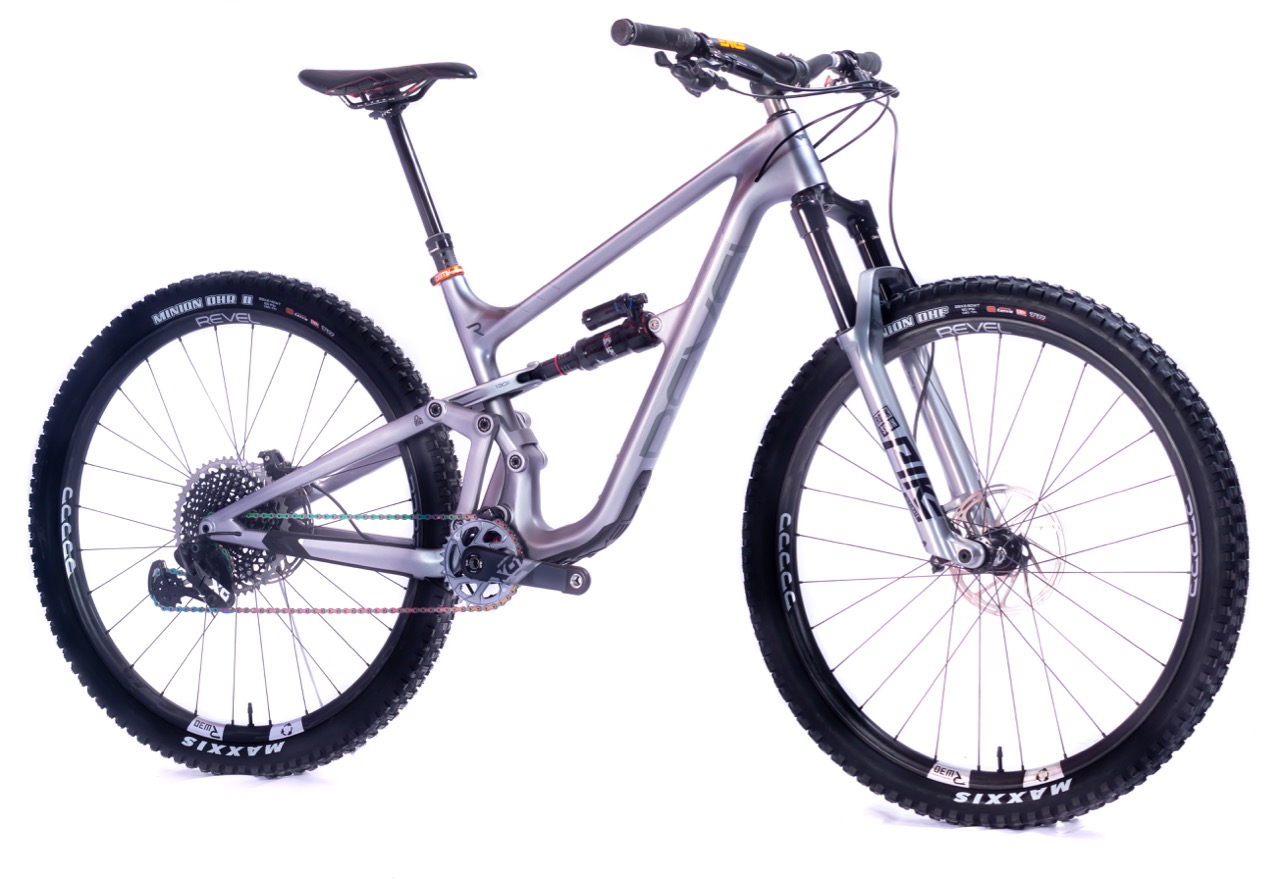
“We’re still a young company and for us environmental friendliness isn’t a political statement. If you’re buying a bike to ride in nature, you’re probably on the same side. We have our core roots here in Colorado where it’s very liberal and people like the recyclable aspect, and they like the commitment to sustainability. If we can use our brand and company to talk about it, then it helps. We can say ‘buy these wheels as they ride better, they’re stronger, they’re lighter, and by the way they will never see a landfill, so they’re better for the environment’.”
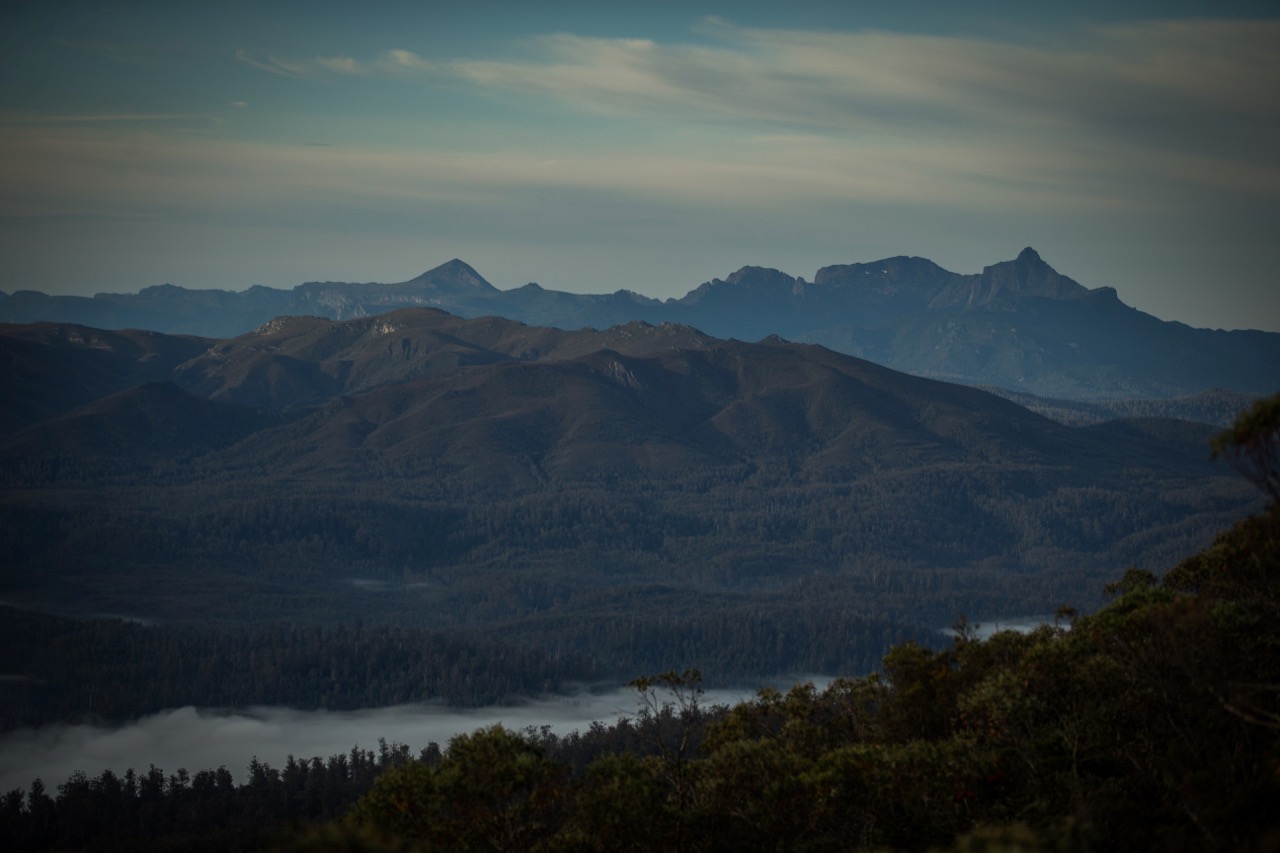
And so far, that messaging along with making such good bikes seems to be working.
“Just 6 months in we were selling in 28 states and nine countries. And we have doubled since then. I haven’t even kept track of the countries recently,” says Reichal. “Anywhere there are trails, people are looking at our stuff.”
Fast growth in a company can put pressure on production standards, and in this case, ethics. Miller has already told me they are ground shipping their bikes now, for reduced emissions. But can pressure to grow change their ideals?
“I’m sure there will be pressure but we’re not going to fall for it,” Reichal states. “It’s not how we want to live our lives. We want to do our own thing. We want to write our own rules for the most part, without being jerks about it. We want to do what makes us feel good and lets us sleep at night.”
Chris King level up to B Corp
In March this year, Chris King became the first company in the bike industry to become a certified B Corporation. What’s that mean? Well it involves striving towards change, and working to make sure their business, products and practices do no harm. It’s a mix of reducing emissions, making products that are built to last and be serviceable, having ethical practices and more.
“We were founded on environmental principles,” explains Erik Fenner from Chris King, when we caught up for a video chat. “Chris was a child of the ’70s. He was a cyclist and an environmentalist, and he wanted to make parts that didn’t need to be replaced all of the time.”
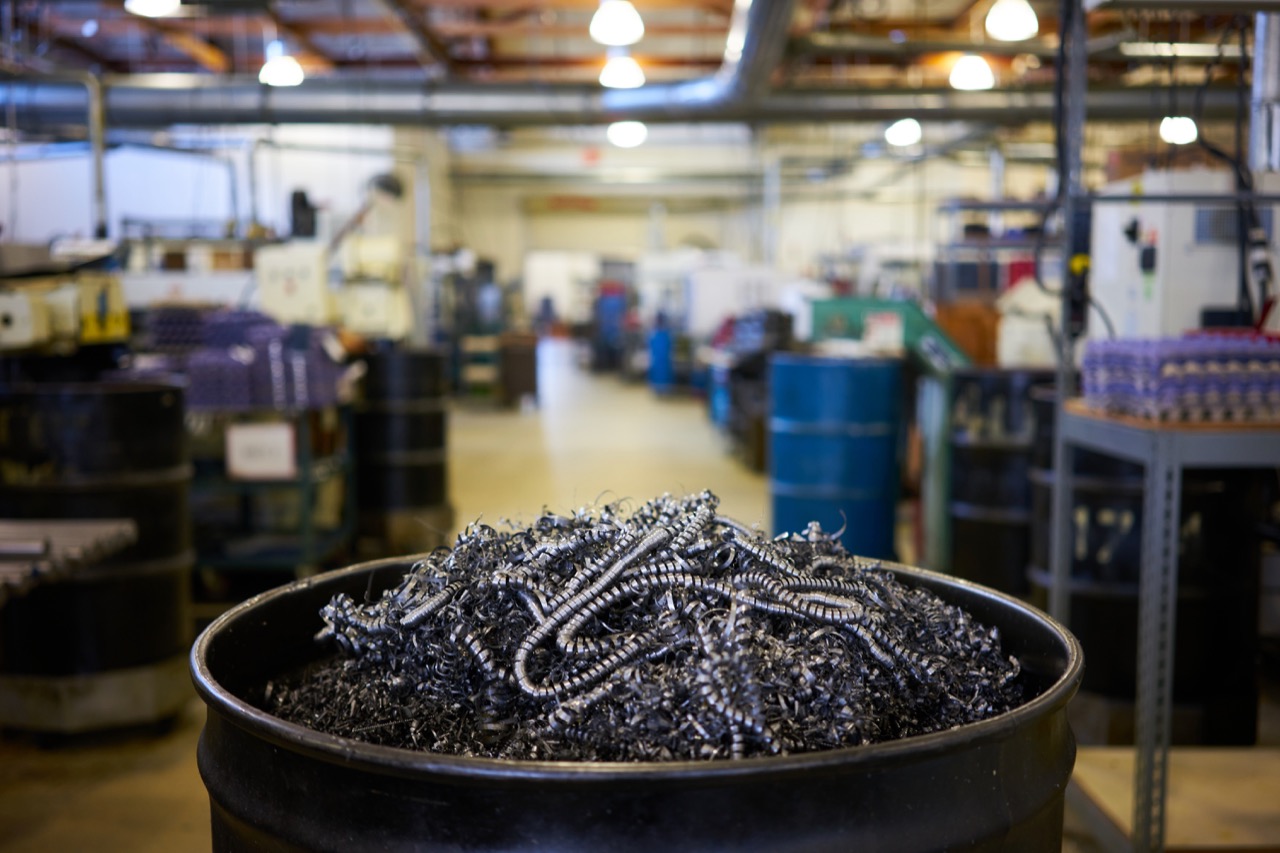
You probably know Chris King as a company that makes high end parts that last a lifetime, and not so much for the environmental focus. But at the production level, how they operate is really interesting. From recycling the waste from machining, to using canola oil as a cutting fluid and having a huge water mass cooling and heating loop that needs no extra energy input for 9 months of the year, it is clear that Chris King promotes sustainable practices and manufacturing.
“Canola oil is infinitely recyclable. But we have to machine a lot slower. We could make 20% more product each year and therefore sell 20% more. And we’re often up against the problem of what we are out of stock of at the moment. But it would be using caustic cutting fluids, and doing things that are not of interest to Chris. The ethos has been there behind everything we do,” Fenner says. “It’s not about what’s the fastest way to make it, or what’s the cheapest way to make it, it is what is the most eco-friendly way to make it.”
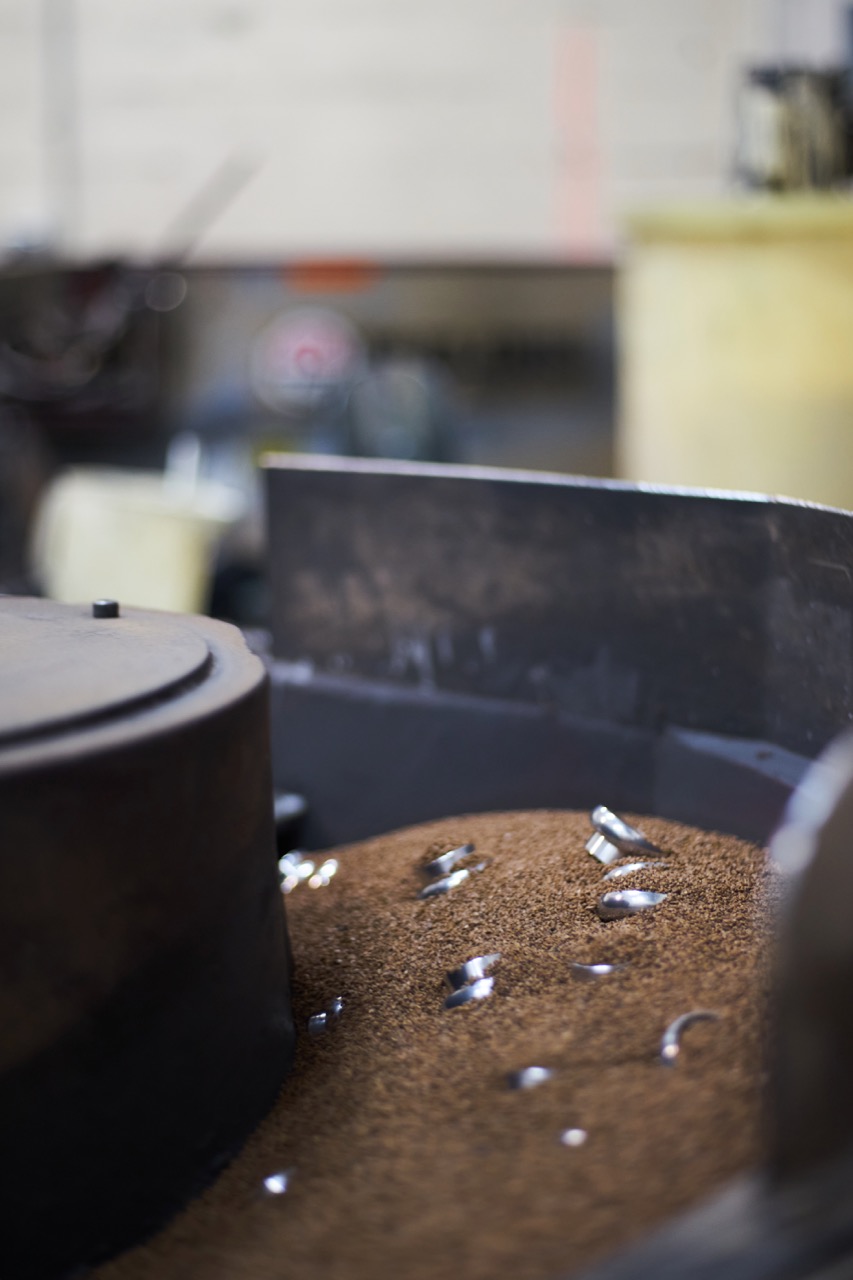
Fenner is still realistic about what they’re doing. “We’re manufacturing stuff. We’re using steel and aluminium mined from ore. We just make it good enough so it’s only done once.”
There is hope that going to a B Corp puts pressure on others in the bike industry, according to Fenner, but given the points based system the certification uses, it isn’t restricted to equipment production. And he sees the actions of brands like Patagonia as an indication that clothing companies may be one of the next to be certified.
“Maybe you can’t manufacture in the most environmental way possible, but you can carbon offset or invest in benefiting the environment in another way.”
Chris King were already operating at a very sustainable level, but the certification is beyond more than production. “Going to a B Corp is not just the environmental element but also the social one,” says Fenner. And that has its own complications, including trying to find a more diverse employee base in a pretty niche sector.
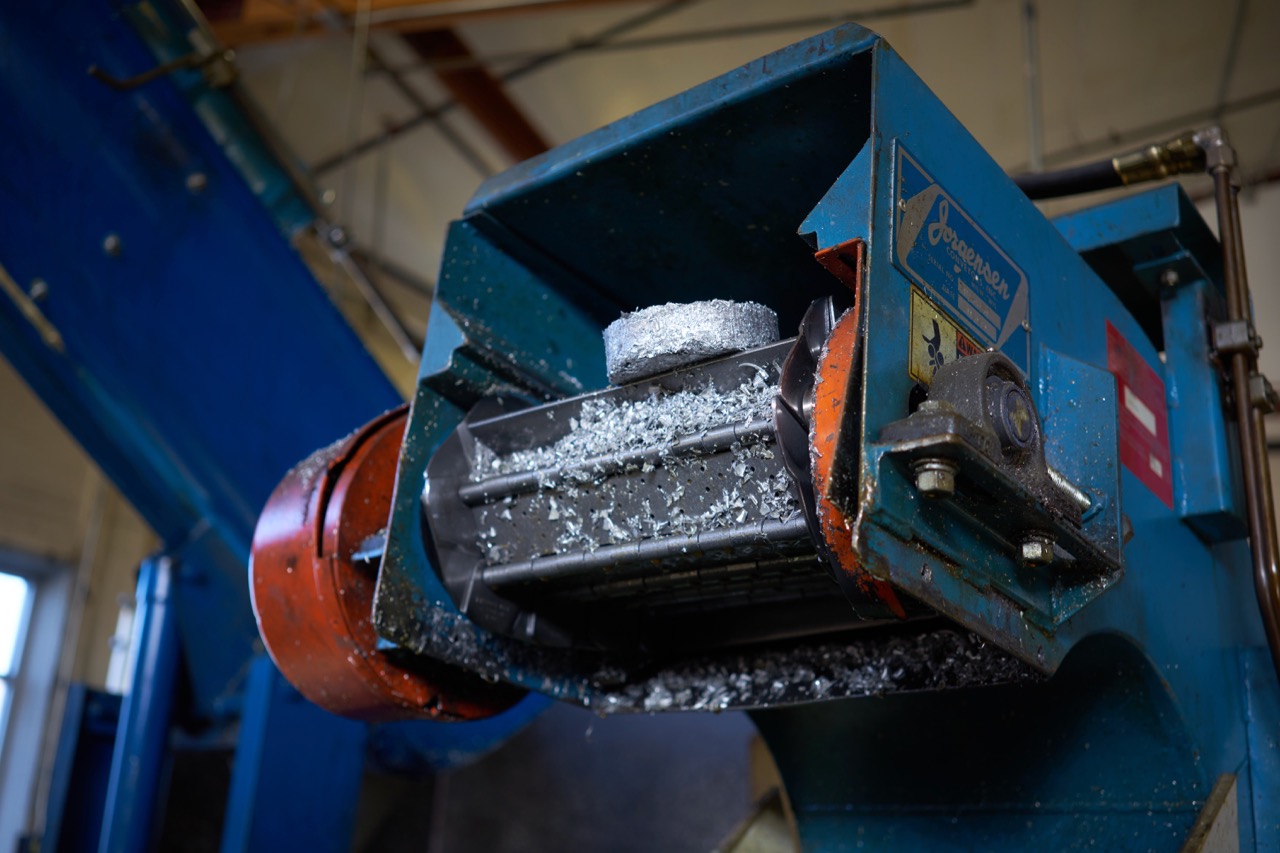
Fenner adds that they have scaled back since he started with Chris King.
“When I was hired I was the 164th employee. Now we are at 80. We didn’t let anyone go, but we just had too many people. It wasn’t the work and social environment we wanted to create. And we were putting out more scrap as not everyone can work to the tolerances we want to.”
With strict efficiencies to maintain, I have to ask Fenner how their sustainability ethos impacts their partnerships both for teams, and for products like wheels.
“We’ve had a long standing relationship with ENVE and it has been great for both of us. We go with ENVE as we know their sourcing, their processes and how they treat their employees. And it’s the same with Santa Cruz and their Reserve rims. They’ve built a super durable rim that they know will stand up to the abuse as best as possible. And if it doesn’t, they’ll stand behind it still.”
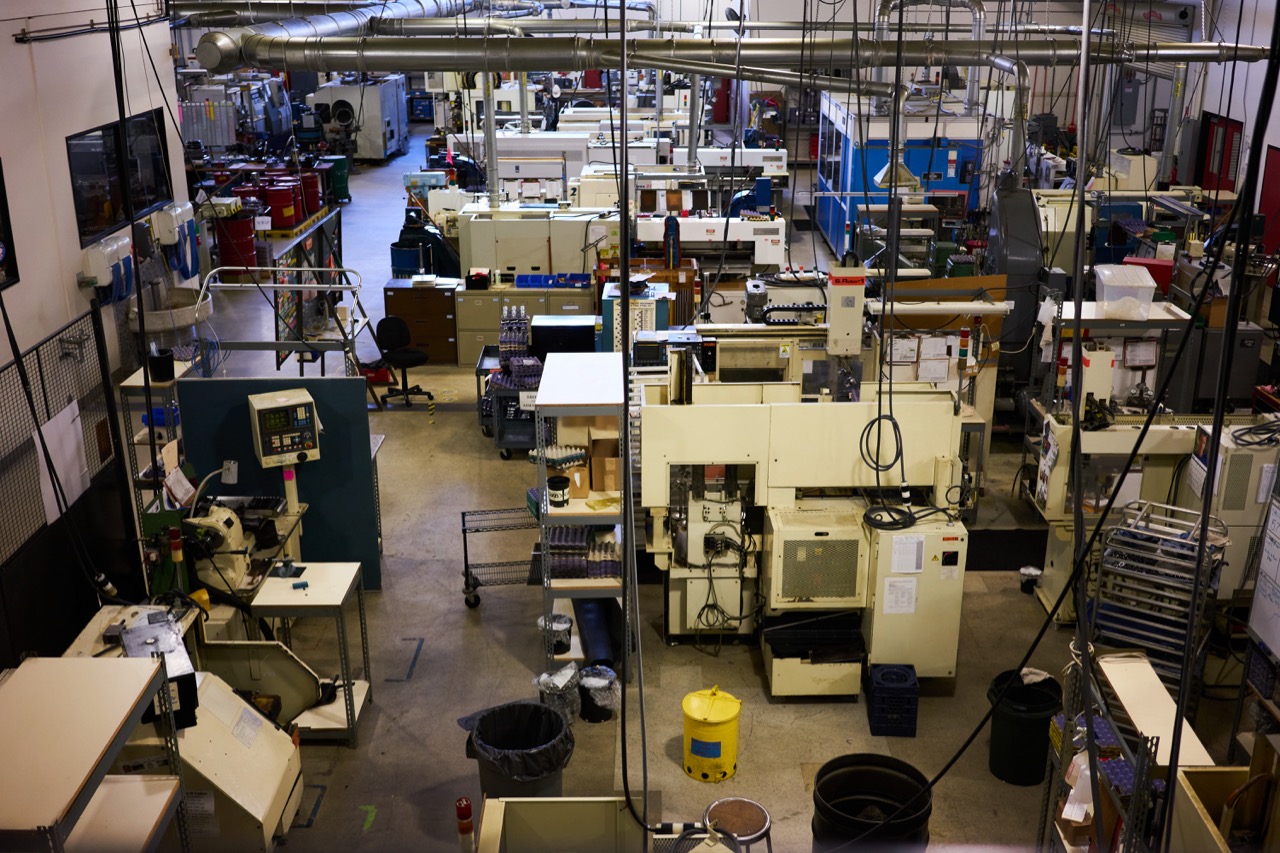
“We did a limited run of through axles with the Robert Axle project. We went with them as they are another small business, they told us who their machine shop was, and we knew their practice, and although they don’t go to the same extent we do, they met us in the middle. Same with Peaty’s, we helped them nail down some colours for the valves, and they have made lots of efforts with their products. Sustainability is a big factor in choosing who we work with. If a brand aligns with our values it’s a key consideration for any colab.”
Fenner thinks sustainability should be at the forefront of all our minds, impacting what we carry when we ride, and what bikes we buy.
“Our playground is what we need to protect. You see wrappers from bars on the trail, all that stuff has an impact. You need to think about what you consume. What do you take on the ride, and how often are you replacing your gear? If you can get a bike and ride it and enjoy it, think about whether you actually need the new colour when the new model comes out. It will all make a difference, maybe not tomorrow but in ten years we will see the difference.”
And what about the trails we ride?
One of the biggest mountain bike trail projects in Australia has to be Maydena Bike Park. Nestled into the wilderness that is Tasmania’s south-west, the mountain bike park has a truly wild setting. Surely, Tasmania’s militant left would have been up in arms about the development?
“We’re very cognisant that any trail we build has an impact.” said Simon French of Dirt Art. What helped with planning and approval was the fact that the site for Maydena Bike Park had already seen forestry activity, and about 50% of the land had been forested at some stage. And given there was a building at the summit, the land had been given a recreation overlay, which has mountain biking as a permissible activity.
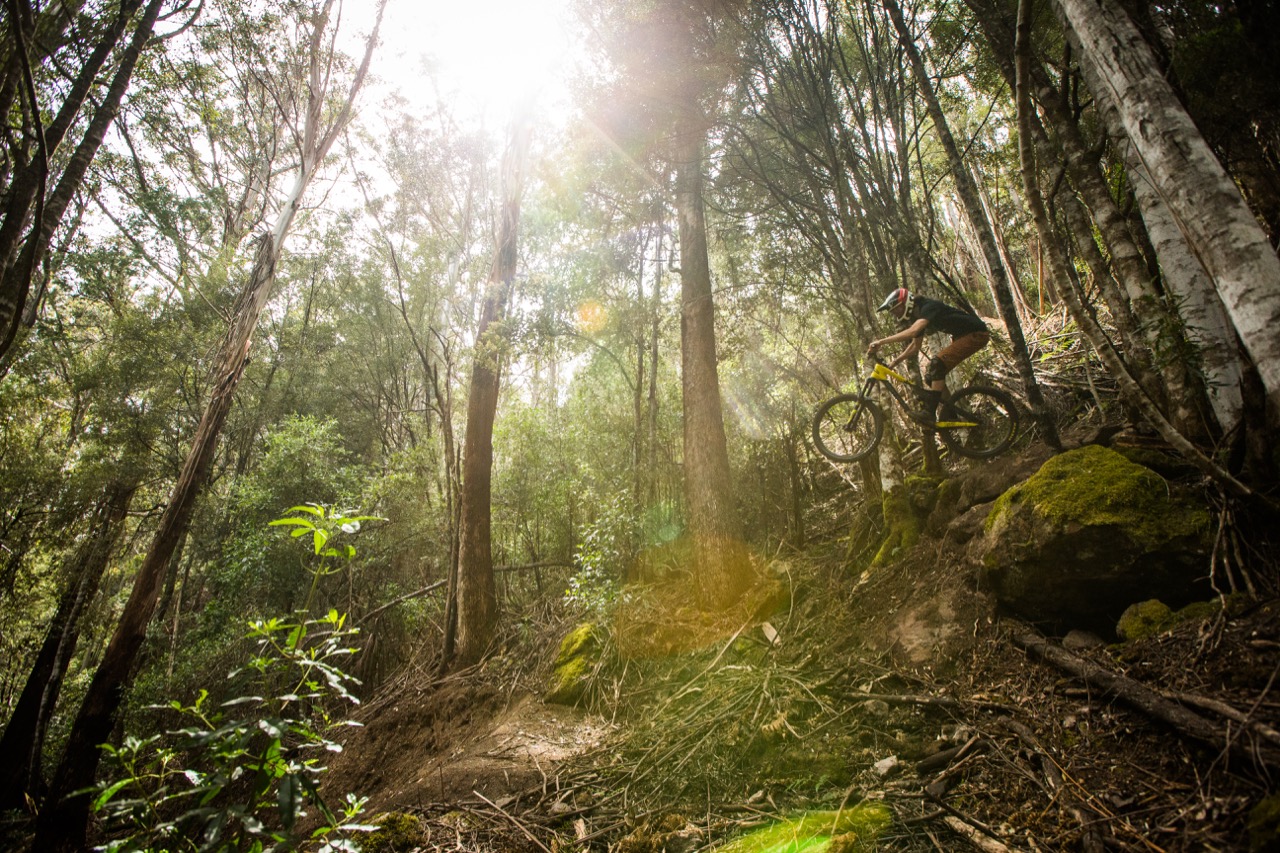
However, a key part of the planning for Maydena Bike Park involved engaging other groups. Reaching out to them in the planning stage so there wasn’t negative feedback in the construction stage.
“We reached out to the Wilderness Society and the Bob Brown Foundation amongst others,” explained French, who also said they received great support. “We did fully independent flora and fauna surveys, for endangered species.” They needed to look for Wedge Tail Eagle nests and habitat for the Tasmanian Devil. And given the snow gums and limestone cave system up higher, they only ended up putting one trail in off the summit, despite planning for more.
Laying out the trail system was another challenge, but one made easier with their research data, vegetation mapping and understanding of where certain flora and fauna were.
“We aim to have a minimal disturbance on flora and fauna, and needed to block out certain areas. It made a patchwork to weave trails through, something you can see if you look at a trail map,” explains French.
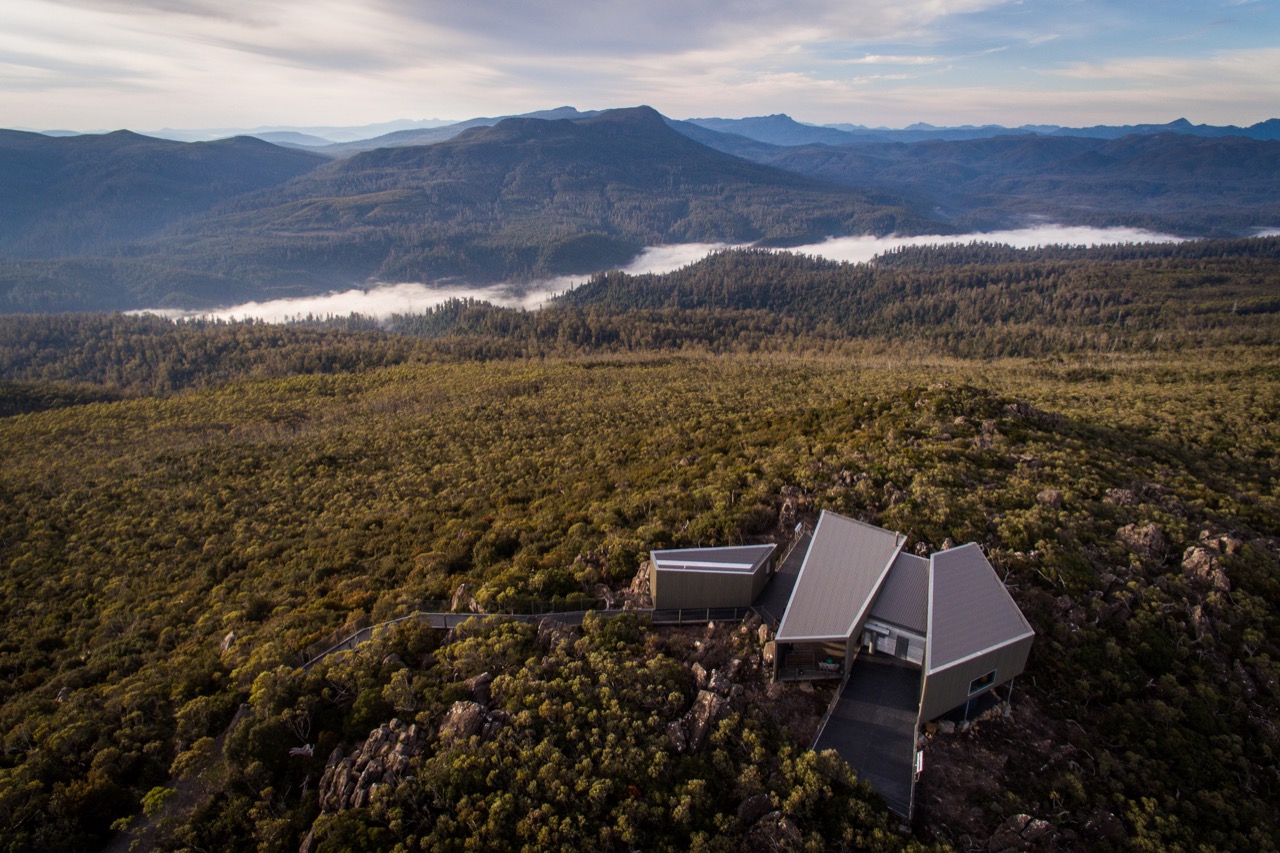
The Dirt Art trail crews then operate under strict guidance, with protocols on what the maximum tree size they can remove is, plus always checking for Tasmanian Devil dens. Lower down the mountain there was more scope to change the trails as well. Given the lower area had been heavily forested, using bigger excavators for jump lines wasn’t a problem – as the terrain was so disturbed. But up the top and in the mid section it’s quite different.
If you have been on the trails at Maydena Bike Park you will understand how wild it feels, and that’s something that French says he gets a lot of feedback on from visiting high profile riders. Lots of riders really engage with the connection to the wilderness, as so often gravity trails are in environments that are more disturbed, like in a ski resort. But Maydena Bike Park manages to showcase the landscape without disturbing the sensitive areas.
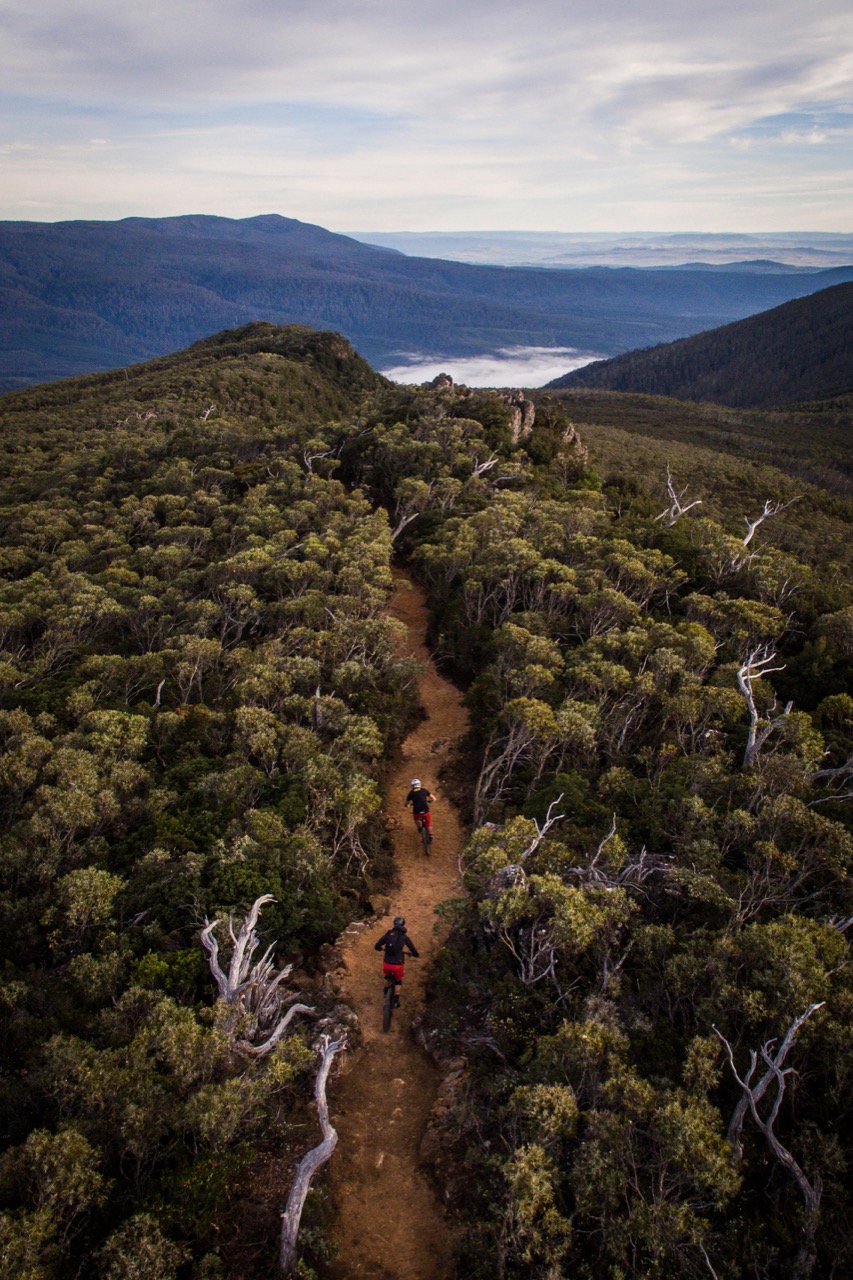
We hope to see further trail developments follow this example, thereby letting a greater number of people get up close to wilderness areas, without impacting them.
9 ways you can reduce your impact
1. Pack a pump and not CO2 for your next ride.
2. Buy your lube and sealant in bulk, to reduce packaging.
3. Ditch the aerosols, and use a pressure pump pack.
4. Ride local – where can you ride from home?
5. Share your ride – if you are driving to the trails, why not carpool with mates?
6. Support ethical businesses who are working towards being more sustainable.
7. Choose high quality products that don’t just last one season.
8. Make more trips by bike – your mountain bike can take you to more places than just cool trails!
9. Don’t short cut trails – this increases the need for maintenance, and can create unnecessary erosion.
10. Upskill your maintenance – you can really extend your bike’s service life by knowing when to service it, and how.
What about AMB?
Our printer IVE is based in Sydney, which means we don’t have our magazines printed offshore with lower environmental restrictions and an increased amount of freight. IVE adheres to the ISO 14001 Environment certification, and are part of the Program for Endorsement of Forest Certification and the Forest Stewardship Council chain of custody certification. They only partner with suppliers who meet the sourcing standards such as SA8000, WCA, BSCI and SMETA. So this all covers minimising environmental impact, promoting sustainable forestry and avoiding deforestation of tropical forests. Their suppliers also meet social certifications about fair employment practices throughout a supply chain.
Our publisher, Next Media, tracks the circulation of magazines, making sure newsagents aren’t oversupplied with copies of the magazine. Unsold copies are no longer returned and need to be recycled locally, which reduces freight. Sales data is continually monitored so over supply of magazines is already very limited.
If you want to make sure you’re part of reducing waste, why not subscribe? There is no over supply, plus you save a bit of money. Alternatively, any newsagent can request a single copy of any magazine, to keep for a customer. So if you can’t find AMB locally, just ask.

